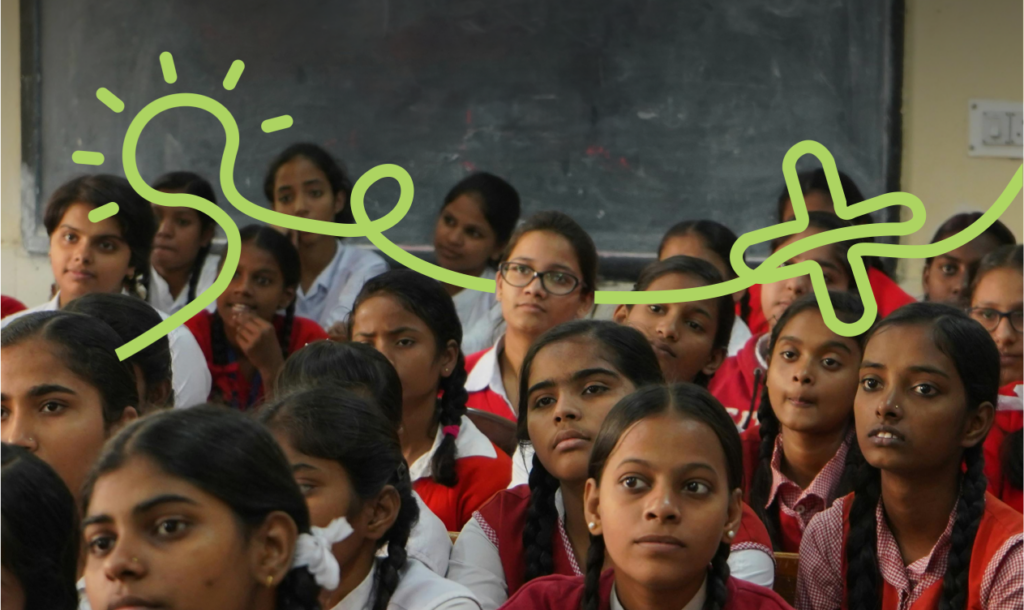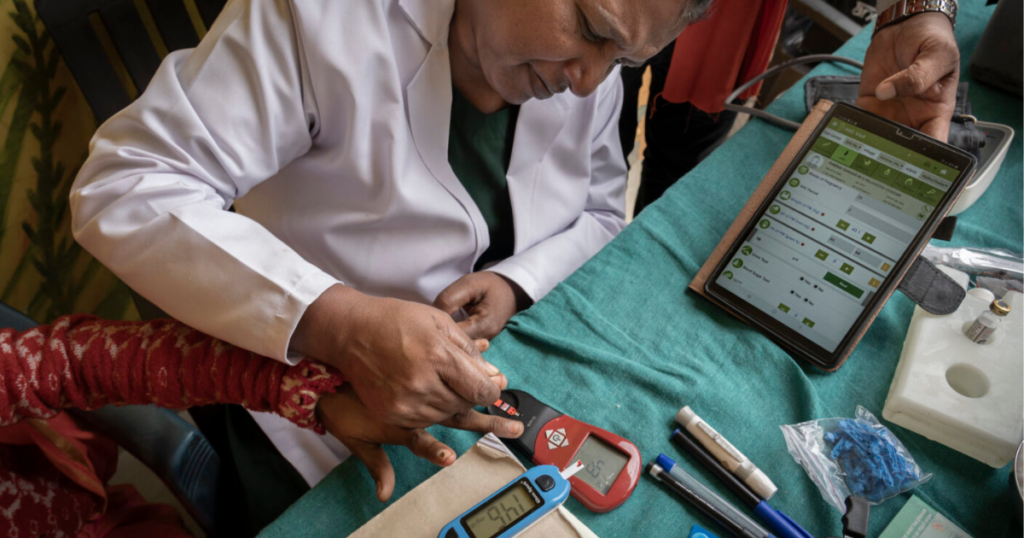Digital technology is increasingly being leveraged by organisations working in the social sector to create impact and enhance service delivery across a range of sectors. Digital public goods have the potential to unlock opportunities worth USD 700 Bn in India and scale impact for its citizens.
This study, conducted across four donor categories, including corporate funders, domestic and international foundations, and multilateral organisations indicates major trends across four key parameters:
Intervention area
Interventions across donor categories prioritise digital literacy (36%) and platform development/deployment (34%). Digital interventions were observed across five broad areas: enhancing digital literacy, building new digital platforms and deploying existing ones, developing new technologies and deploying existing ones, building digital infrastructure, and building or deploying data management systems.
•Corporates: A majority of the CSR grants focused on digital literacy initiatives, followed by platform development/deployment.
•Domestic Foundations: In addition to digital literacy initiatives, domestic foundations prioritised platform development/deployment and data management.
•International Foundations: Grants support platform development or deployment, as well as data management and technology development/deployment.
•Multilaterals: Most of the grants by multilaterals support digital literacy initiatives, in addition to platform development/deployment.
Sector Focus
Funding for digital initiatives spanned across a variety of sectors with specific focus on healthcare (24%), livelihoods (21%) and education (14%).
•Corporates: Interventions were observed majorly in the livelihoods sector followed by the education sector.
▪Interventions were focused on capacity building initiatives that promoted digital upskilling among students and young professionals, and fostered digital financial inclusion of women entrepreneurs.
•Domestic Foundations: Interventions were observed in three sectors – healthcare, education, and urban development.
▪Interventions included vaccination tracking platforms, initiatives driving research and academic programmes on digital health, and digital training for teachers amongst others.
•International Foundations: Interventions were observed in the healthcare sector, followed by livelihoods and environment.
▪Interventions focused on development of health information sharing platforms, health data monitoring systems, and use of Artificial Intelligence and Machine Learning for risk stratification and screening of diseases.
•Multilaterals: The largest number of interventions were observed in the livelihoods and healthcare sectors. Interventions included promotion of digital skilling and entrepreneurship by MSMEs.
Geography
While corporates prioritise interventions closer to their areas of operation, international foundations and multilateral organisations have a pan–India focus.
•A majority of CSR projects are focused around Maharashtra and Karnataka, as a large number of companies spending on digital initiatives are based out of these regions.
•International foundations and multilateral organisations provide grants that have a strong focus on southern and western India, Bihar and Uttar Pradesh.
•Domestic foundations are observed to prioritise states in western and central India.
•There is lack of focus on remote and mountainous regions such as the north-eastern states and northern hill states across all donor categories.
Funding Size
While multilaterals offer the largest grant sizes, corporates and international foundations provide a larger number of smaller-sized grants. Multilaterals are the largest funders, with INR 7 crores as the average annual grant, followed by international foundations with INR 8 crores, and corporates with INR 9 crores. On the other hand, international foundations lead the race with 43% of projects, followed by 28% by corporates, 19% by domestic foundations, and 11% by multilaterals.
•Corporates: IT and technology companies provide largest grants for digital initiatives followed by fast moving consumer goods (FMCG) and banking, financial services and insurance (BFSI). While Tech Mahindra reported the largest spend, Capgemini and Cipla reported the largest number of digital interventions. All three companies laid emphasis on digital literacy.
•Domestic Foundations: Tata Trusts reported the largest number of digital interventions, with focus on data management for urban and rural development.
•International Foundations: While GIZ is the largest spender, BMGF reported the highest number of digital interventions, with both foundations operating across multiple intervention areas.
•Multilaterals: The World Bank is the largest spender, providing a combination of loans and grants with key focus on promoting the use of fintech, supporting development of platforms as well as initiatives promoting digital financial literacy.
Best Practices for Investors
Despite the increased funding in recent years, gaps exist in the digital funding space that must be addressed through the following practices:
•Shift focus to sectors with low technology penetration such as rural and urban development, environment, and agriculture.
•Strengthen focus on digital literacy to enable digital inclusion and effective adoption of emerging technologies.
•Integrate philanthropic funding with India’s priorities on the development of digital public goods like DESH Stack, OCEN, and ONDC.
•Allocate more resources towards suboptimally funded areas of digital intervention, such as technology development and digital infrastructure development.
•Extend support towards underserved regions, states with low economic development, and remote regions by partnering with local organisations to implement digital literacy programmes.
Authors: Shreyanka Chandel, Arnab Mukherjee, Rupsa Banerjee and Abhishek Modi




